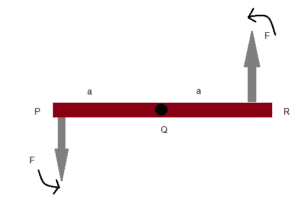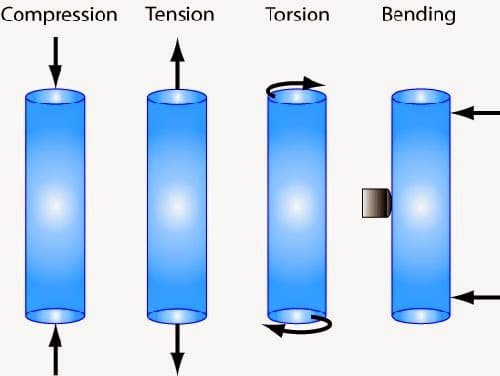Types of load in strength of material
There are three types of load considered in strength of material.
- Point load
- Distributed load
- Couple
Point load:

If a load acts on small distance, then load can be assumed to be concentrated on a point. This load is known as point load and denoted by letter “P”.
Distributed load
If load acts on a considerable distance, then this type of load is known as distributed load. In general, for comparison and calculations, distributed load is considered per unit length.
There are two types of distributed load
-
Uniformly distributed load

In uniformly distributed load, magnitude of load remains constant though out the length where load acts.
Uniformly distributed load can be converted to point load by multiplying load with loading length. This load is known ad equivalent concentric load as it acts at the Centre of loading length.
Equivalent concentric load = uniformly distribute load / loading length
-
Non uniformly distributed load
Here, load vary across the length. This is also known as uniformly varying load
There are two types of uniformly varying load
- Triangular load : As the name implies, this load acts in shape of triangle. Magnitude of load is zero at one end and vary across the length in triangle shape.

-
Trapezoidal load: This load acts in the shape of trapezoid. It is combination of uniformly distributed load and triangular load.
Couple

When two equal and opposite load acts on same span, their line of action are parallel to each other and opposite direction, these loads create couple. This couple tries to rotate the span if there is any difference in magnitude
Nature of load

- Tension & Compression
Point load can be tensile or compressive in nature. Tensile force tries to pull and compressive force tries to push the components.
- Torsion
Output force generated by couple is termed as torque. Effect of this torque is known as torsion. Torsion is the result of twisting of rod or bar about it axis due to applied couple.
- Bending
When two point load with same direction act at distance, it tries to bend the component. This effect is known as bending.



I like this web site its a master peace ! .